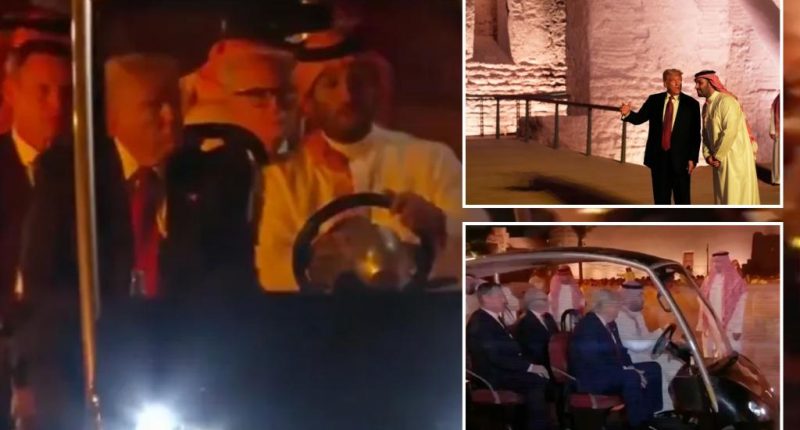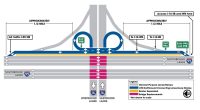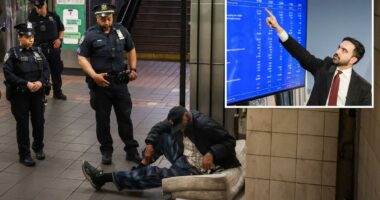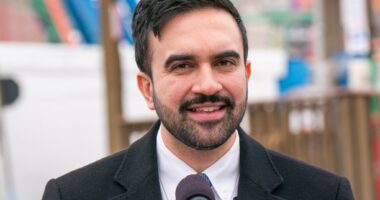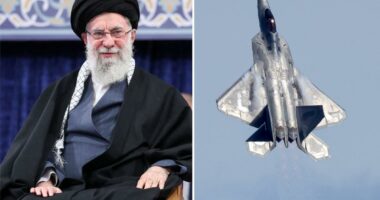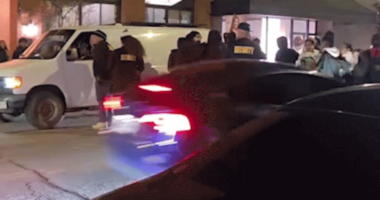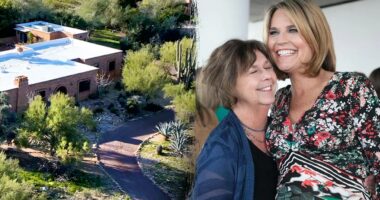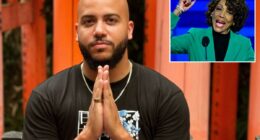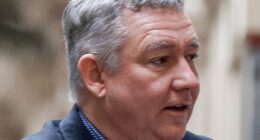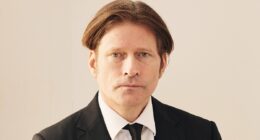Share this @internewscast.com

DIRIYAH, Saudi Arabia — President Trump was chauffeured to dinner in a golf cart by Saudi Crown Prince Mohammed bin Salman on Tuesday, concluding a series of elaborate ceremonies celebrating the visiting US leader.
At 78, Trump climbed into the cart driven by Saudi Arabia’s de facto leader, 39, while being greeted with traditional honors at the historical 18th-century capital of the Saudi royal family outside Riyadh.
In front of Salwa Palace, built in 1765, numerous men donned in the traditional Saudi attire of a white robe and red headscarf swayed and sang to the rhythm of a drum as Trump arrived for the formal state dinner with cabinet secretaries and Elon Musk.
The motorcade’s route to the heritage site was lined with horsemen carrying US flags and a squadron of mounted camel riders.
The use of the golf cart likely was a point of personal diplomacy to cap off the shows of affection to Trump, an avid golfer known for using that transportation on regular weekend trips to his resorts.
Earlier Tuesday, the Saudi government welcomed Air Force One with a six-fighter-jet escort before a squad of white Arabian horses escorted the motorcade to the royal palace.
Trump and the crown prince, widely known as MBS, warmly praised one another throughout the day — with the visit coming after former President Joe Biden refused to shake the prince’s hand — giving a fist bump instead in protest of the monarch’s alleged role in the 2018 murder of Washington Post columnist Jamal Khashoggi.
Trump hailed what he said were pledges of nearly $1 trillion in new Saudi investments in the US and pledged to sell $142 billion in weapons to the kingdom, affirming the military partnership after years of bipartisan pushback on such transactions over the war in Yemen.
The visit was tightly choreographed by the Saudi government and journalists covering Trump’s dinner arrival were sternly warned not to shout quests to avoid upsetting the host authorities — heading off potentially embarrassing or divisive queries about subjects such as the country’s nuclear power ambition and human rights abuses.
